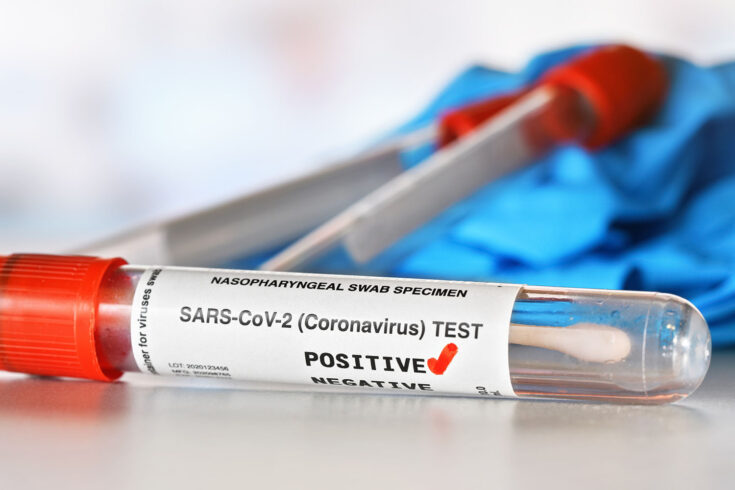A new COVID-19 test that can deliver highly accurate results in just a few minutes has been developed by researchers at the University of Birmingham.
Current COVID-19 tests
The most rapid tests for COVID-19 take up to 30 minutes to deliver a result, but this is often at the expense of accuracy.
The most accurate COVID-19 tests require detecting viral RNA. The most common of these use a technique called polymerase chain reaction (PCR).
The PCR test is a two-step process, which involves first converting the RNA to DNA and then ‘amplifying’ the material many times over.
Rapid test results
This new test is not only fast, delivering a result in under five minutes, but also sufficiently sensitive, according to the researchers.
The test does not require samples to be treated at high temperatures, and it can be performed using standard laboratory equipment, making it readily deployable.
The new Birmingham test simplifies the method to a single step and uses an alternative amplification method called exponential amplification reaction (EXPAR).
This technique uses very short, single strands of DNA for the replication process, which can be completed in a matter of minutes. This makes a significant reduction in the overall time needed to produce results.
The entire test can be run on standard laboratory equipment at lower temperatures. PCR tests in comparison require higher temperatures to separate out strands of DNA as part of the amplification process.
Simple handheld test
The researchers are made up of a cross-disciplinary team from the University of Birmingham’s:
- School of Biosciences
- School of Chemistry
- Institute of Cancer and Genomic Sciences.
The researchers anticipate that further development work could lead to a simple handheld test being developed which could give ‘on the spot’ results.
The team are currently applying for funding from UK Research and Innovation (UKRI) to develop the test for NHS laboratories.
Increasing NHS testing capability
Research Professor Tim Dafforn, of the School of Biosciences says:
The EXPAR technique has been tried and tested over several years, but we’ve been able to apply it in a new way to detect COVID-19. This is an extremely promising approach to developing a rapid, accurate test which could increase NHS testing capability by up to five times.
Professor Andrew Beggs, of the University of Birmingham’s Institute of Cancer and Genomic Sciences, says:
More rapid testing will allow us to unlock near-patient testing, getting people safely back to work and controlling outbreaks when they happen. The development of the EXPAR test will allow us to produce more tests that can rapidly diagnose COVID-19.
Last updated: 8 January 2021

